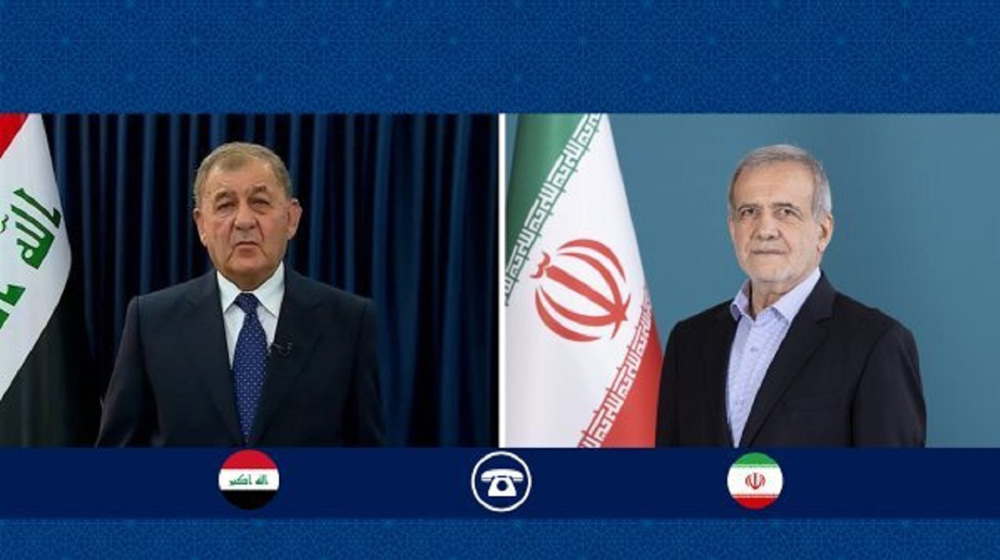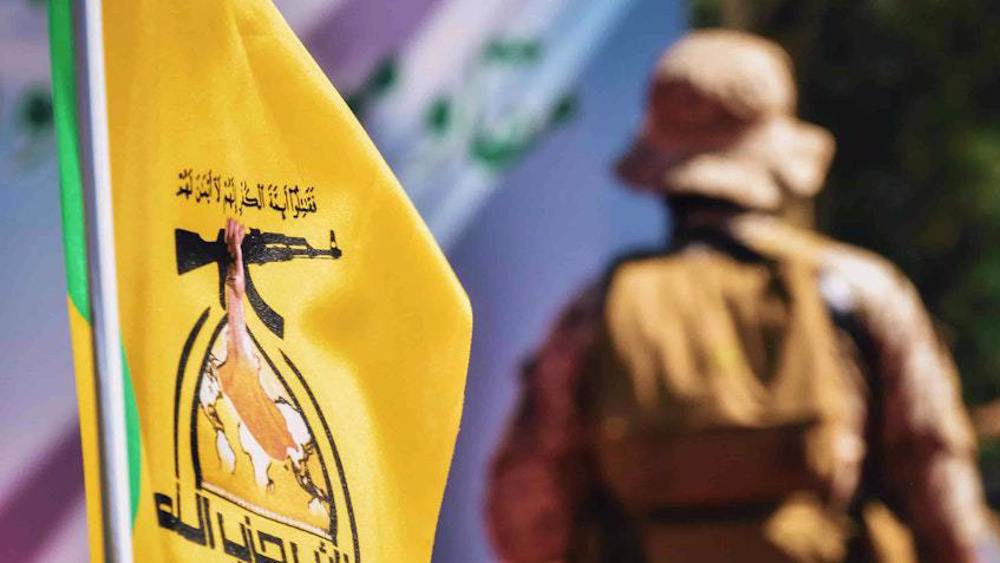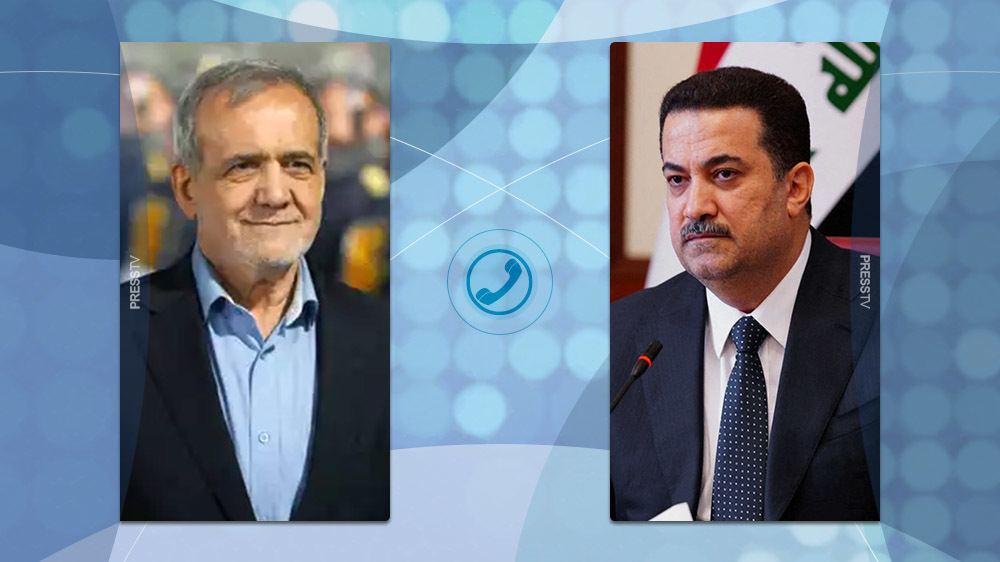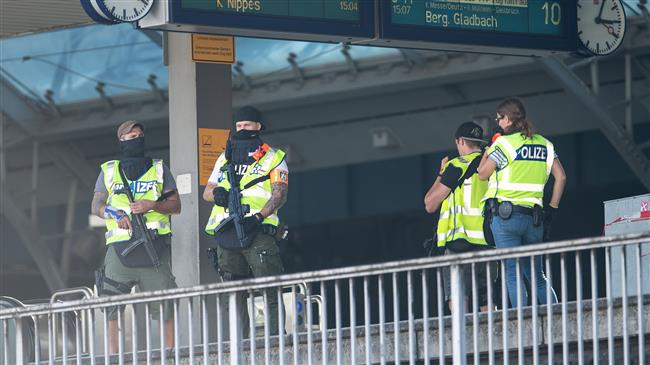Iraq’s Salahuddin provincial governor survives assassination attempt
The governor of Iraq’s central province of Salahuddin has escaped a roadside bomb explosion unhurt as government forces and allied fighters from the Popular Mobilization Units are engaged in joint operations to cleanse the country of the last remnants of the Daesh Takfiri terrorist group.
Mohammed Khalil al-Bazi from Salahuddin Operations Command said the blast ripped through the convoy of Ammar Jabr Khalil al-Jabouri north of the oil-rich city of Baiji, located some 210 kilometers north of the capital Baghdad, on Thursday.
Bazi said the explosion wounded two bodyguards of the governor and badly damaged a vehicle in the motorcade.
No group has claimed responsibility for the attack yet, but some local news outlets suggest it was carried out by Daesh.
On August 8, 2016, former Iraqi defense minister Khaled al-Obeidi's convoy came under sniper fire but he was unharmed.
Brigadier General Yahya Rasool, the spokesman for the Iraqi Joint Operations Command (JOC), said the attack took place in the western outskirts of Baiji.
“The minister is well and safe,” Rasool said, adding that a guard had been slightly injured in the attack.
There was no immediate claim of responsibility for the assassination attempt.
Hashd al-Sha’abi fighters kill 11 Daesh remnants in western Iraq
Meanwhile, pro-government Iraqi fighters from the Popular Mobilization Units, better known by the Arabic name Hashd al-Sha’abi, have killed nearly a dozen Daesh militants in the country’s troubled western province of Anbar.

Hashd al-Sha’abi commander Safa al-Sa’adi said the voluntary fighters and army forces, backed by air force fighter jets, carried out a cleanup operation on the outskirts of Tharthar town, situated 120 kilometers north of Baghdad, killing 11 terrorists and destroying an amount of weapons and explosive materials.
Sa’adi added that the slain Takfiris were planning to carry out a bombing attack in Tharthar.
Three Daesh militants, including senior commander, killed in Diyala
Separately, three Daesh militants, including a high-ranking commander, have been killed during a security operation in Iraq’s eastern province of Diyala.
“Security forces launched a security operation, under the directives of Diyala Police Chief Major General Faisal al-Abadi, to pursue Daesh cells near Qarah Tabbah district,” Arabic-language Mawazin news agency quoted the spokesman for Diyala Police, Colonel Ghalib al-Attiya, as saying.
On June 30, former Iraqi prime minister Haider al-Abadi, who is also the commander-in-chief of Iraqi forces, pledged to hunt down Daesh militants across Iraq after a series of attacks and abductions carried out by the terrorist group.
“We will chase the remaining cells of terrorism in their hideouts and we will kill them, we will chase them everywhere, in the mountains and the desert,” Abadi said.
Abadi declared the end of military operations against Daesh in the Arab country on December 9, 2017.
On July 10 that year, the Iraqi prime minister had formally declared victory over Daesh extremists in Mosul, which served as the terrorists’ main urban stronghold in the conflict-ridden Arab country.
In the run-up to Mosul's liberation, Iraqi army soldiers and volunteer Hashd al-Sha’abi fighters had made sweeping gains against Daesh.
The Iraqi forces took control of eastern Mosul in January 2017 after 100 days of fighting, and launched the battle in the west on February 19 last year.
Daesh began a terror campaign in Iraq in 2014, overrunning vast swathes in lightning attacks.

Pezeshkian says relations with Iraq ‘priority’, hails proximity of two nations

Iraq's Kata'ib Hezbollah: Disarmament reports 'lies and fabrications'

Iran determined to implement all its agreements with Iraq: President Pezeshkian
Saudi Arabia calls for 'maximum pressure' on Israel as UN warns of ‘longest Gaza blockade’
Pezeshkian says relations with Iraq ‘priority’, hails proximity of two nations
China raises retaliatory tariffs on US goods to 125%
Reaching agreement ‘possible’ if US ends intimidation, threats: Iran’s deputy FM
‘Iran’s chemical warfare victims living proof of hollowness of West’s human rights claims’
China's oil imports from Iran surge despite US sanctions: Report
Official: Iran has surpassed West's 'arbitrary' redlines on nuclear tech
Mostly women, children killed as Israel expands Gaza onslaught












 This makes it easy to access the Press TV website
This makes it easy to access the Press TV website